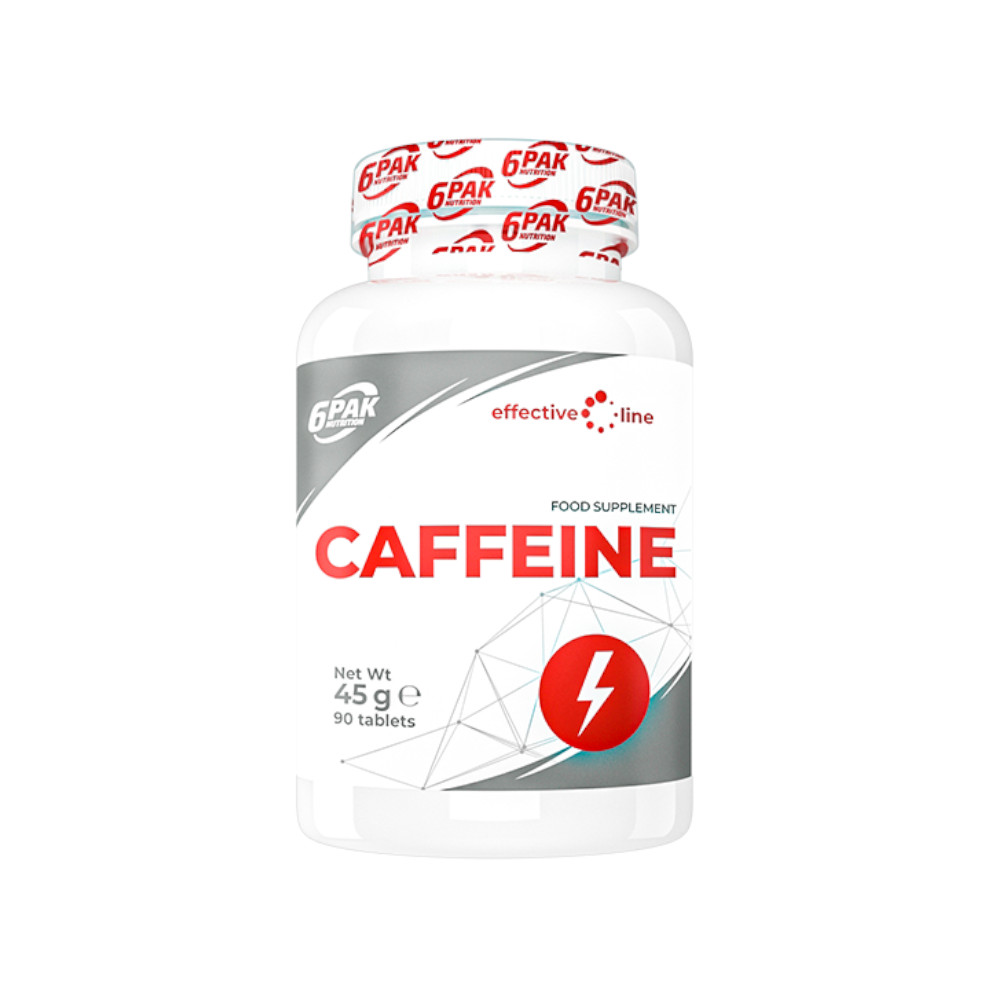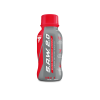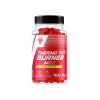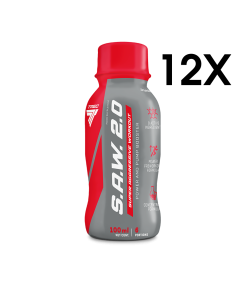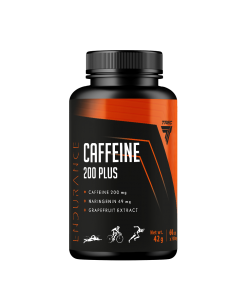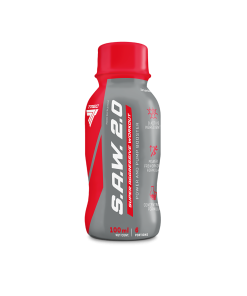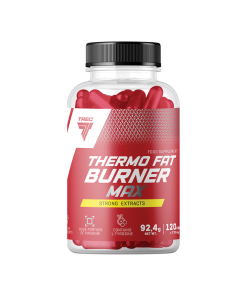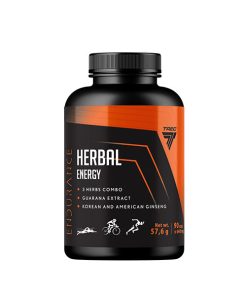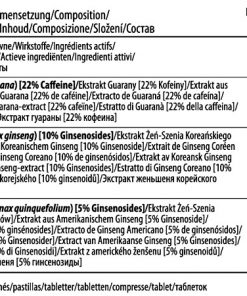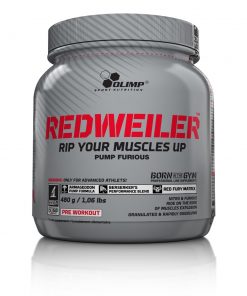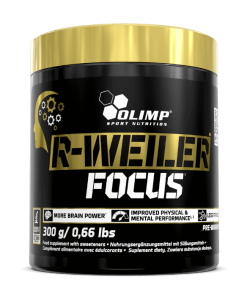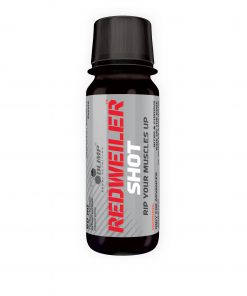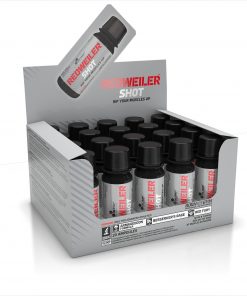No products in the cart.
Caffeine 200mg 90 hylki
1.690 kr.
Caffeine in capsules with the addition of grapefruit extract. As much as 200 mg of caffeine in each serving! Caffeine helps to improve focus and concentration, has a stimulating effect, and also contributes to increased alertness.
Category: Örvandi vörur
Brand: 6Pak Nutrition
Inniheldur mikið af koffíni, (200mg pr skammt) . Ekki æskilegt fyrir börn eða barnshafandi konur eða konur með barn á brjósti
WARNINGS: Do not exceed the recommended daily dose. Do not use the product as a substitute for a varied diet. Children, pregnant or nursing woman must not take the product. Varied and balanced diet and a healthy lifestyle are important. The product may contain allergens such as: milk, soy, wheat, barley, oats, eggs, peanuts and nuts.
STORAGE: Keep this packaging tightly closed in a dry place, at the temperature of 15–25°C. Keep out of the reach of children.
Who doesn’t know caffeine?
Caffeine is extremely popular around the world. If you want to add caffeine to your supplementation – we have an excellent offer for you! Caffeine with the addition of grapefruit extract in a convenient form of capsules will surely appeal to you. But let’s start from the beginning. As you probably know, caffeine is a plant alkaloid that in its pure form is a bitter white powder. The effects of caffeine are similar to those of other methylxanthines (including those found in various teas and chocolates). These effects include mild stimulation of the CNS (or central nervous system), including wakefulness and cognition1.
Caffeine and physical activity
Caffeine reduces fatigue and increases concentration and alertness, and athletes regularly use it as an ergogenic agent, i.e. supporting exercise capacity. Caffeine-induced performance gains have been observed in both aerobic and anaerobic sports. According to scientific research, even smaller amounts of caffeine (1.0-2.0 mg/kg) can improve performance. It is most likely related to e.g. with reduced neuromuscular fatigue2. Caffeine is popular not only before physical activity, but also among people working mentally, due to the fact that it helps to increase alertness (measured as the speed of reaction time) and supports the improvement of focus and concentration3.
What is naringenin?
Our product Caffeine has been enriched with grapefruit extract, which is now standardized for the content of naringenin. You’re probably wondering what kind of relationship this is. Well, naringenin belongs to a subgroup of flavonoids known as flavanones and is found mainly in citrus fruits and tomatoes. Citrus flavonoids exhibit a variety of biological properties4. The most recognized effect of flavonoids is their antioxidant activity. Naringenin is known as a free radical scavenger. And as it is well known, the regulation of cellular production of antioxidants plays an important role in the functioning of the human body5. In addition, the potential of naringenin to modulate glucose and lipid metabolism still arouses considerable interest and is the subject of numerous studies4.
What properties does grapefruit extract have?
Grapefruit supports the body’s immunity, supports the defense system3. When it comes to naringenin itself, it has a wide biological effect on the human body. This includes reducing biomarkers of lipid peroxidation and protein carbonylation (this applies to the oxidation of amino acid residues), promotes carbohydrate metabolism, increases antioxidant defense, scavenges reactive oxygen species, modulates the activity of the immune system. It has also been reported to have a high ability to modulate signaling pathways related to fatty acid metabolism, which promotes fatty acid oxidation6.
Bibliography:
- Institute of Medicine (US) Committee on Military Nutrition Research. Caffeine for the Sustainment of Mental Task Performance: Formulations for Military Operations. Washington (DC): National Academies Press (US); 2001. 2, Pharmacology of Caffeine. Available from: https://www.ncbi.nlm.nih.gov/books/NBK223808/
- Pesta D. H., Angadi S. S., Burtscher M., Roberts C. K., The effects of caffeine, nicotine, ethanol, and tetrahydrocannabinol on exercise performance. Nutrition & Metabolism Journal (Lond), 2013, Dec 13;10(1):71.
- Lista PENDING opublikowana na podstawie Rozporządzenia Komisji (UE) NR 432/2012 z dnia 16 maja 2012 r. ustanawiającego wykaz dopuszczonych oświadczeń zdrowotnych dotyczących żywności, innych niż oświadczenia odnoszące się do zmniejszenia ryzyka choroby oraz rozwoju i zdrowia dzieci.
- Rebello C. J., Beyl R. A., Lertora J. J. L., Greenway F. L., Ravussin E., Ribnicky D. M., Poulev A., Kennedy B. J., Castro H. F., Campagna S. R., Coulter A. A., Redman L. M., Safety and pharmacokinetics of naringenin: A randomized, controlled, single-ascending-dose clinical trial. Diabetes, Obesity and Metabolism, 2020, Jan;22(1):91-98.
- Alam M. A., Subhan N., Rahman M. M., Uddin S. J., Reza H. M., Sarker S. D,. Effect of citrus flavonoids, naringin and naringenin, on metabolic syndrome and their mechanisms of action. Advanced in Nutrition, 2014, Jul 14;5(4):404-17.
- Salehi B., Fokou P. V. T., Sharifi-Rad M., Zucca P., Pezzani R., Martins N., Sharifi-Rad J., The Therapeutic Potential of Naringenin: A Review of Clinical Trials. Pharmaceuticals (Basel), 2019, Jan 10;12(1):11.
| na 1 kaps. | % RWS* | |
| Caffeine | 200 mg | – |
| Grapefruit extract | 50 mg | – |
| – of which naringenin 49 mg – | 49 mg |
Ingredients: anhydrous caffeine (33.4%), maltodextrin, capsule shell (gelatin)B / (glazing agent – hydroxypropyl methylcellulose) C / (gelatin, dyes – titanium dioxide, iron oxides and hydroxides, patent blue V)D, grapefruit extract ( Citrus paradisi) [98% naringenin] (8.4%), anti-caking agent – magnesium salts of fatty acids.
May contain unintentional presence of milk derivatives, soybeans, cereals containing gluten, eggs, peanuts and other nuts.
Related products
Sale!
Fyrir æfingar
Fyrir æfingar
1.390 kr.
Fyrir æfingar
290 kr.
Fitubrennsla
4.490 kr.
Önnur Fæðubótarefni
2.790 kr.
Fyrir æfingar
10.995 kr.
Fyrir æfingar
7.991 kr.
Fyrir æfingar
439 kr.


